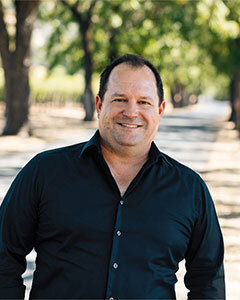Sharing your alcohol branding budget with your creative agency up front will ensure a more efficient RFP process, an accurate proposal that addresses your specific needs and the beginning of a business relationship that is based on trust and transparency.
Every time a prospect reaches out to my agency with an RFP, one of the first questions we ask is, “What’s your budget?”. Some prospects are hesitant to share this information for fear of being “ripped of.” They are afraid that by sharing the branding budget, agencies will write their proposals to maximize that budget. However, quite the contrary is true. The purpose of asking for a budget is to determine how the agency can customize their services to address your specific needs at a cost that works for you. This allows the agency to present a proposal that provides the best bang for your buck. Without an idea of the resources allocated to the project, the agency has no way of proposing the most appropriate approach or whether to suggest an alternative, and perhaps more cost-effective option, that addresses your needs.
Here are 3 reasons why sharing your branding budget from the get-go is a good idea:
- You get an accurate proposal. The most common answers we get with the budget question are, “I don’t have one” or, “I’d like to see what you come up with first.” Often this approach leads to inappropriate proposals and a client response of, “Your fees were too high, so we went with another agency.” I thought you didn’t have a budget!?
Consider this: Would you ever ask a contractor to quote on a house build without telling him/her your budget? Do you want a three-story mansion or a cabin? Without a clear vision of the home you want and the money you are willing to spend, the contractor can’t possibly develop and propose the right solution. The same is true of creative services. It’s in the best interest of your company and creative agency to provide clear objectives and an accurate budget. This allows the agency to propose the best solution for you project.
If you’re putting a project out to bid, your primary goal should be to get an accurate proposal, not just to find the best price. Most creative and consulting services are customizable; the creative process has almost nothing in common hard goods that have more finite costs. Clearly identifying the scope in conjunction with a budget expectation provides clear parameters for the project. The more information you give your agency, the more accurately they can address your needs. If the agency doesn’t know your budget, they risk wasting your time and theirs by bidding too high or too low. Be careful of bids that come in far below your expectation. You run the risk of being misaligned with the agency on scope or getting a pile of unexpected addendum bills as the project progresses.
- A reputable creative agency wants to work within the budget you have. Granted, there’s always a chance that you and your creative agency will be too far apart on budget but knowing this immediately rather than wasting time with an inappropriate proposal is far more efficient for both parties. Additionally, if an agency knows your budget constraints up front, they can ask questions and suggest strategic, cost-savings options. Without knowledge of your budget, these suggestions may not be realized. Any business relationship has to make business-sense for both parties and having the budget conversation up-front is critical to the proposal process.
- It establishes trust and transparency. Doing the “numbers dance” is an awkward and potentially risky way to start a partnership. If you don’t share your budget with your creative partner up front, chances are the proposal won’t be what you had in mind – after all, how could it be when the agency is flying blind? Inappropriate proposals will make you and the agency frustrated and cost both of you valuable time. Wouldn’t this time be much better spent developing a realistic, thoughtful solution to your needs?
If you really don’t have a sense of what your branding budget should be, that’s OK, not everyone does. As you request proposals for your project, be honest and don’t hesitate to ask for advice. Through an open conversation, parameters can be set for the budget, or budget range, that will help focus your RFP responses. Your time and money will be much better spent in the long run.
photo credit: dip into savings via photopin (license)
- The Core 4 – Setting the Foundation for Your Brand - September 19, 2025
- The Rise of Low & No Alcohol Spirits: A $4 Billion Bandwagon - July 21, 2025
- The Private Label Opportunity and Bulk Spirits - March 25, 2025


Leave a Reply